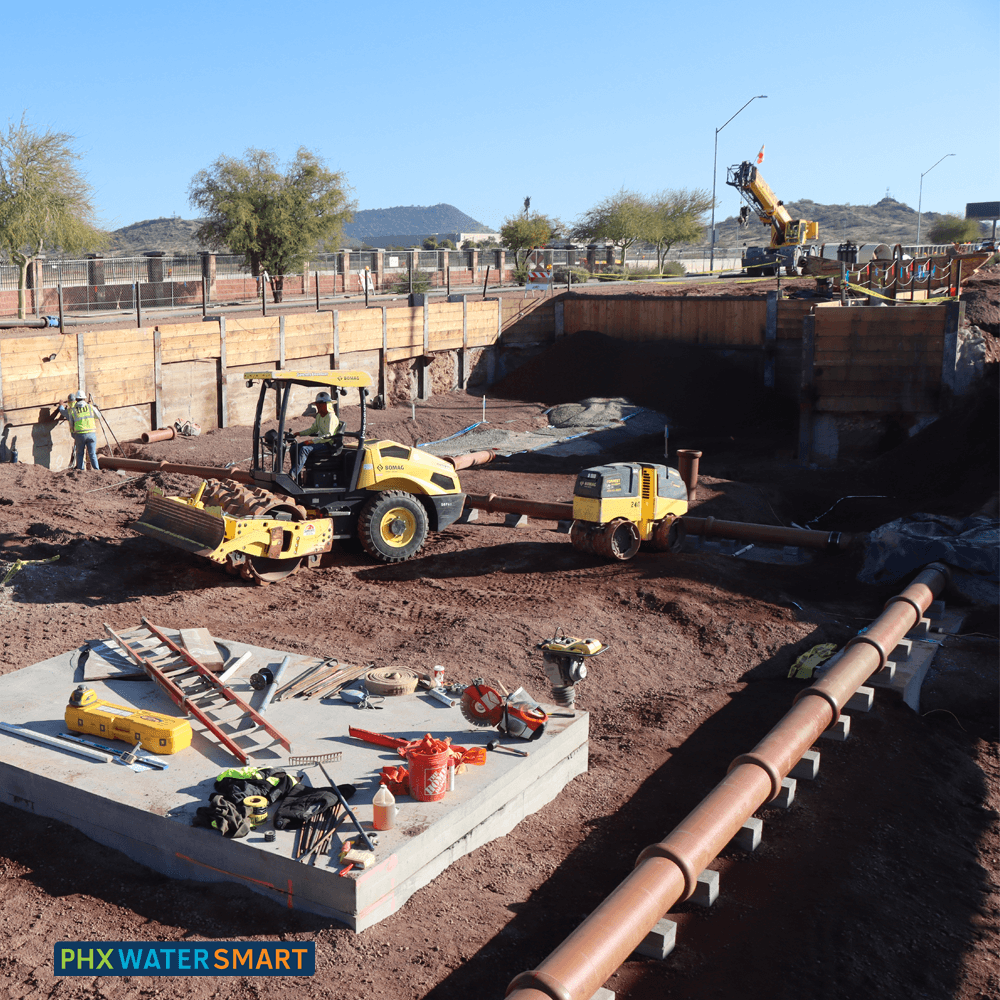AMWUA Blog
BY: AMWUA StaffA Key Infrastructure Bill Introduced at Arizona’s Legislature

Arizona’s leaders are looking for water solutions, which became even more evident with Governor Ducey’s recent proposal to spend $1 billion on augmentation projects to supplement Arizona water resources.
This recent announcement builds on Arizona’s history of investing in infrastructure for water and wastewater. In fact, for over 30 years, a state agency has been dedicated specifically to that cause. The Water Infrastructure Finance Authority of Arizona (WIFA) was established in 1989 to provide loans to Arizona communities looking to improve their water and wastewater infrastructure. WIFA is an important institution in Arizona that has provided over $2.6 billion of financial assistance since its inception, with 292 active loans and projects currently underway.
To expand WIFA’s support of water and wastewater infrastructure, Senator TJ Shope has introduced Senate Bill 1067 this legislative session. The bill intends to streamline the regulatory process so WIFA can increase investment into Arizona water infrastructure. To understand the need for this proposal, it is important to look at how WIFA operates.
 Every year, WIFA receives an annual appropriation from the federal government that enables WIFA to offer loans with discounted interest rates and forgivable principal. As the loans are paid back with interest, the money stays in Arizona and increases the amount WIFA can lend to fund larger projects for new and repeat customers. Small and disadvantaged communities are prioritized and can receive more significant savings. WIFA funds a wide variety of projects, including drinking water treatment, wastewater treatment, stormwater infrastructure, green infrastructure, and aquifer recharge.
Every year, WIFA receives an annual appropriation from the federal government that enables WIFA to offer loans with discounted interest rates and forgivable principal. As the loans are paid back with interest, the money stays in Arizona and increases the amount WIFA can lend to fund larger projects for new and repeat customers. Small and disadvantaged communities are prioritized and can receive more significant savings. WIFA funds a wide variety of projects, including drinking water treatment, wastewater treatment, stormwater infrastructure, green infrastructure, and aquifer recharge.
SB 1067 is designed to ensure that all communities have access to WIFA’s water and wastewater infrastructure funding. Currently, Arizona statute requires any city with a population greater than 150,000 wanting to utilize a WIFA loan for water infrastructure to place the project on the ballot for the next election. This regulatory hurdle may only apply to cities and towns over that 150,000 threshold, yet these municipalities account for over half of Arizona residents, more than four million people.
Senate Bill 1067 makes a simple statutory amendment by removing the ballot requirement. This aligns the process for all municipalities who apply for a WIFA loan, thus providing more direct access to much-needed infrastructure funding.
The timing of this legislation is important since cities and towns in Arizona are facing pressures on their water supplies impacted by two decades of historic drought and the first-ever Tier 1 Shortage on the Colorado River. Another key reason to remove this regulatory hurdle now is to allow all Arizona communities the opportunity to fully benefit from the federal Bipartisan Infrastructure Package that will infuse WIFA with significant funding.
Increasing equal access and expanding utilization of WIFA funds is a win-win for the state. When WIFA acquires a set of bigger, more diverse projects, it bolsters the agency’s financial portfolio. This means that WIFA can maintain its AAA credit rating, continue to offer low-interest rates, and even helps WIFA’s ability to leverage even more money from the bond market. Ultimately, more participation in WIFA’s programs leads to more investment in Arizona’s critical water infrastructure.
AMWUA is proud to support SB 1067 and applauds Senator Shope’s leadership in finding solutions that pave the way for investment in our water infrastructure. Investing in pipelines, canals, treatment plants, recharge projects, and countless other technology upgrades is critical for securing our water future. Such investments ensure that Arizona’s water supplies remain clean and reliable.
To print or save this week's blog, a PDF version is available HERE .
For over 50 years, the Arizona Municipal Water Users Association has worked to protect our member cities' ability to provide assured, safe, and sustainable water supplies to their communities. For more water information, visit www.amwua.org .
To stay informed, sign up for the AMWUA blog:
Sign Up Now For Email Marketing you can trust.
